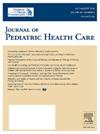Beyond the BMI: An Educational, Family-Centered Approach to Identifying Risk for Childhood Obesity
IF 1.8
4区 医学
Q2 HEALTH POLICY & SERVICES
引用次数: 0
Abstract
Category/Date
Evidence-Based Practice Poster presented at NAPNAP’s 46th National Conference on Pediatric Health Care, Posters on the Move, March 12, 2025
Background & Significance
In the United States, the increasing prevalence of obesity has caused public health concerns. From 2017 to 2020, 14.7 million children were considered obese. Obesity is defined as a body mass index (BMI) at or above the 95th percentile on the growth chart. Pediatric patients with obesity have a 70% likelihood of becoming obese in adulthood and can develop associated cardiometabolic complications. Additionally, they can spend $310 more for healthcare annually than their healthy weight counterparts.
Purpose/Aims
The Family Nutrition and Physical Activity (FNPA) screening tool can be implemented in pediatric primary care clinics to address lifestyle habits and risk for childhood obesity. The purpose of this project was to determine if the FNPA tool can identify more obesogenic behaviors than the standard of care, and if counseling using motivational interviewing (MI) improves FNPA score.
Methods
Thirty-three families with children aged 4 to 18 presenting for their well-child visits filled out the FNPA tool and the standard of care. Counseling was performed with MI and a handout of AAP-endorsed recommendations. After three months, 27 families participated in a follow-up via phone call where the tool was administered again.
Results
92.6% of participants (25/27) improved their score, signifying that family lifestyle changes were implemented. A paired sample t-test showed that scores significantly increased from the pre-intervention score (mean = 64.67, SD = 5.903) to the post-intervention score (mean = 70.67, SD = 5.407); t(26) = -7.109, p< 0.001. Additionally, the FNPA tool identified more obesogenic risk factors than the standard of care.
Discussion
In using the FNPA screening tool, the provider can better counsel on lifestyle behaviors than the standard of care. Improved screening will identify more children at risk for obesity and begin weight management interventions. Children with improved lifestyle behaviors will have lower obesity risk factors. In turn, reduced rates of childhood obesity will have large cost savings.
Conclusions
Families that were screened using the FNPA tool and counseled with MI techniques had a mean improvement of 9% (six points) in their score and demonstrated improved lifestyle behaviors over three months. Future studies may be necessary with extended follow-up periods to see long-term lifestyle changes.
超越BMI:以教育、家庭为中心的方法来识别儿童肥胖的风险
类别/日期基于证据的实践海报在NAPNAP第46届全国儿科保健会议上发表,海报在移动中,2025年3月12日背景和意义在美国,肥胖症的日益流行引起了公众健康的关注。从2017年到2020年,1470万儿童被认为肥胖。肥胖被定义为身体质量指数(BMI)达到或超过生长图表上的第95个百分位数。肥胖的儿科患者有70%的可能性在成年后变得肥胖,并可能出现相关的心脏代谢并发症。此外,他们每年在医疗保健上的花费比健康体重的同龄人多310美元。目的/目的家庭营养和身体活动(FNPA)筛查工具可以在儿科初级保健诊所实施,以解决儿童肥胖的生活习惯和风险。本项目的目的是确定FNPA工具是否能比标准护理识别出更多的致肥行为,以及使用动机性访谈(MI)进行咨询是否能提高FNPA评分。方法33个4 ~ 18岁儿童就诊家庭填写了FNPA量表和护理标准。咨询是通过MI和aap认可的建议进行的。三个月后,27个家庭通过电话随访,再次使用该工具。结果92.6%的参与者(25/27)的得分有所提高,表明家庭生活方式的改变得到了实施。配对样本t检验显示,干预前得分(均值 = 64.67,SD = 5.903)至干预后得分(均值 = 70.67,SD = 5.407)显著升高;T(26) = -7.109,p< 0.001。此外,FNPA工具比标准护理识别出更多的致肥危险因素。讨论在使用FNPA筛查工具时,医生可以提供比标准护理更好的生活方式行为建议。改进的筛查将识别出更多有肥胖风险的儿童,并开始进行体重管理干预。生活方式改善的儿童肥胖风险因素会降低。反过来,降低儿童肥胖率将节省大量成本。结论:使用FNPA工具进行筛查并接受MI技术咨询的家庭得分平均提高9%(6分),并且在三个月内表现出改善的生活方式行为。未来的研究可能需要延长随访期,以观察长期生活方式的变化。
本文章由计算机程序翻译,如有差异,请以英文原文为准。
求助全文
约1分钟内获得全文
求助全文
来源期刊

Journal of Pediatric Health Care
NURSING-PEDIATRICS
CiteScore
3.40
自引率
10.70%
发文量
140
审稿时长
24 days
期刊介绍:
The Journal of Pediatric Health Care, the official journal of the National Association of Pediatric Nurse Practitioners, provides scholarly clinical information and research regarding primary, acute and specialty health care for children of newborn age through young adulthood within a family-centered context. The Journal disseminates multidisciplinary perspectives on evidence-based practice and emerging policy, advocacy and educational issues that are of importance to all healthcare professionals caring for children and their families.
 求助内容:
求助内容: 应助结果提醒方式:
应助结果提醒方式:


